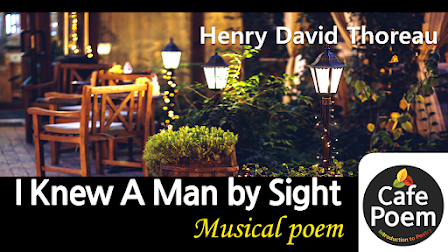My November Guest
My Sorrow, when she's here with me,
Thinks these dark days of autumn rain
Are beautiful as days can be;
She loves the bare, the withered tree;
She walks the sodden pasture lane.
Her pleasure will not let me stay.
She talks and I am fain to list:
She's glad the birds are gone away,
She's glad her simple worsted grey
Is silver now with clinging mist.
The desolate, deserted trees,
The faded earth, the heavy sky,
The beauties she so truly sees,
She thinks I have no eye for these,
And vexes me for reason why.
Not yesterday I learned to know
The love of bare November days
Before the coming of the snow,
But it were vain to tell her so,
And they are better for her praise.
Enjoy the poem with beautiful music.
poem video👇
Who wrote the poem "My November Guest"?
Robert Frost (March 26, 1874 – January 29, 1963)
Robert Frost was an American poet who was born in San Francisco, California. Frost’s life was marked by grief and loss. When he was 11, his father died of tuberculosis, leaving just eight dollars. Frost’s mother died of cancer when he was 26. Mental illness ran in his family. He and his mother suffered from depression, and his sister and his daughter were committed to mental hospitals. Using realistic depictions of rural life, his poems often examined complex social and philosophical themes. Frost’s first book was published at the age of 40, but he ended up winning four Pulitzer Prizes for poetry and becoming the most famous poet of his time.
"My November Guest" explanation
In
the poem, the speaker personifies sorrow as a woman and regular visitor whom he
loves and respects, implying he might have experienced a great deal of sorrow
in November. This “Guest” (sorrow) teaches the speaker about the beauty of
November, and although the speaker already knows about this (“Not yesterday I
learned to know”), he doesn’t correct his guest, for “they are better for her
praise.” The poem is a very unique and authentic expression of the poet’s complex
feelings for November days (love and sorrow).








